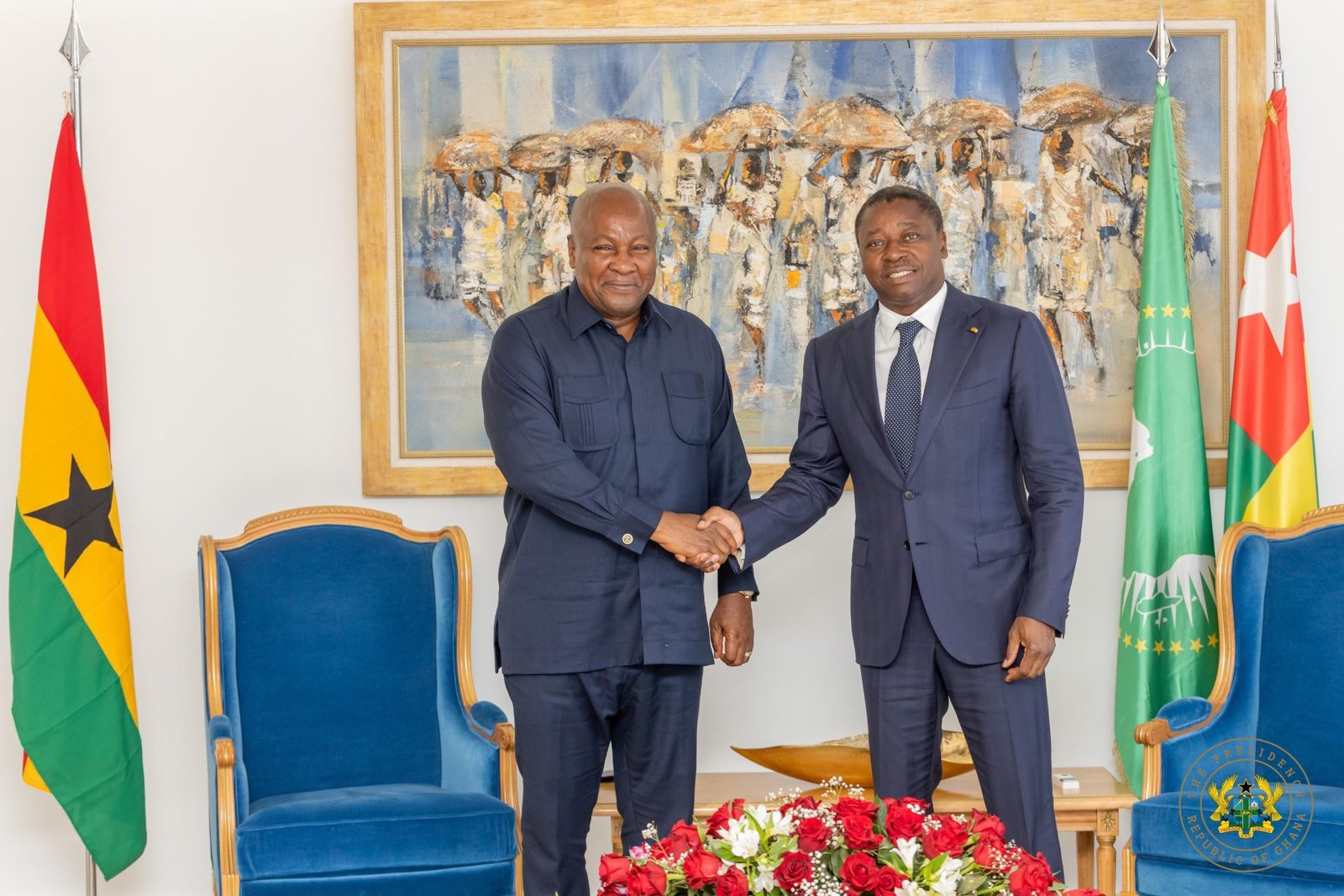News
Mahama shares Ghana’s debt restructuring lessons at AU conference

President John Dramani Mahama addressed fellow African leaders at the African Union Conference on Debt in Lomé, Togo, on Monday, sharing insights from Ghana’s experience with debt restructuring.
He emphasised the importance of transparency and timely engagement with creditors to avoid severe economic consequences from reactive debt management decisions.
The president highlighted the significant infrastructure gap facing Africa, which requires an estimated $130-170 billion in annual investment. He noted that the lack of access to affordable, long-term financing options often leaves nations with unsustainable debt burdens.
Citing IMF data, the President expressed concern that 22 African countries are currently in or at high risk of debt distress. He pointed out that the average public debt-to-GDP ratio in sub-Saharan Africa is projected to exceed 60% in 2025, a significant increase from 40% a decade ago.
Drawing from Ghana’s history, President Mahama referenced the Heavily Indebted Poor Countries (HIPC) initiative and the Multilateral Debt Relief Initiative (MDRI), which enabled Ghana to reduce its debt-to-GDP ratio from over 100% to under 30%. This, he explained, freed up crucial fiscal space for investments in key sectors like education, roads, and healthcare.
“Ghana, like many of our peers, has had to undergo painful restructuring to restore macroeconomic stability and rebuild investor confidence,” President Mahama stated.
He highlighted Ghana’s strategic use of concessional and non-concessional financing between the early 2000s and 2015 to accelerate infrastructure development and social inclusion.
The President detailed how, after initial progress, Ghana’s debt situation deteriorated due to a combination of unrestrained borrowing and multiple external shocks, leading to a debt-to-GDP ratio increase from 56.3% in 2016 to a peak of 90.7% in 2022.
He noted that by 2023, interest payments alone consumed 47% of total government revenue, a level deemed fiscally unsustainable by the World Bank.
News
Man sentenced to 25 years for robbery at Manso Akwasiso

A 30-year-old man has been sentenced to 25 years imprisonment with hard labour by the Bekwai Circuit Court for his role in a 2022 robbery at a mining site at Manso Akwasiso in the Ashanti South Region.
The convict, Dominic Ofori, also known as Fanta, was arrested on 16th February 2026 after years on the run. He pleaded guilty before the Bekwai Circuit Court to robbery contrary to Section 149 of the Criminal Offences Act, 1960 Act 29, and was accordingly sentenced to 25 years imprisonment with hard labour.
On March 20, 2022, the Manso Adubia District Police received intelligence that a group of armed men from Manso Abodom were planning to attack a mining site at Manso Akwasiso to rob the owner of gold concentrate. Acting on the information, police mounted a coordinated operation and laid an ambush at the site.
At about 5:30 pm the same day, four-armed men arrived at the site, fired indiscriminately, and robbed the miners of their gold concentrate. The police team on surveillance intervened, resulting in an exchange of gunfire.
Three of the suspects, Abu Abubakar, Musah Latif, and Gideon Takyi, sustained gunshot wounds and were pronounced dead on arrival at St Martins Catholic Hospital at Agroyesum. Dominic Ofori escaped at the time but was later arrested and put before the court.
The Ashanti South Regional Police Command has assured the public of its continued commitment to combating violent crimes and bringing offenders to justice.
News
Ashanti police arrest man for publishing false news on TikTok

The Ashanti Regional Police Command has arrested 45-year-old Isaac Boafo, also known as “Duabo King,” for allegedly publishing false news intended to cause fear and panic.
Police said the arrest follows a viral TikTok video in which Boafo claimed that four officers at the Central Police Station in Kumasi engaged in inappropriate conduct with commercial sex workers during night patrols in Asafo.
Officers from the Police Intelligence Directorate (Ashanti Region) apprehended Boafo after receiving intelligence about the video.
During questioning, he admitted to creating the video to attract views and engagement online, and acknowledged that he could not prove the allegations.
Boafo also admitted making comments about the President of the Republic for content purposes and could not defend those statements.
He has been formally charged and is in detention as investigations continue.
The Ashanti Regional Police have warned the public against publishing or sharing false information on social media, noting that such acts can cause fear, panic, and damage reputations.
They said anyone found engaging in similar conduct will face legal action.
By: Jacob Aggrey














